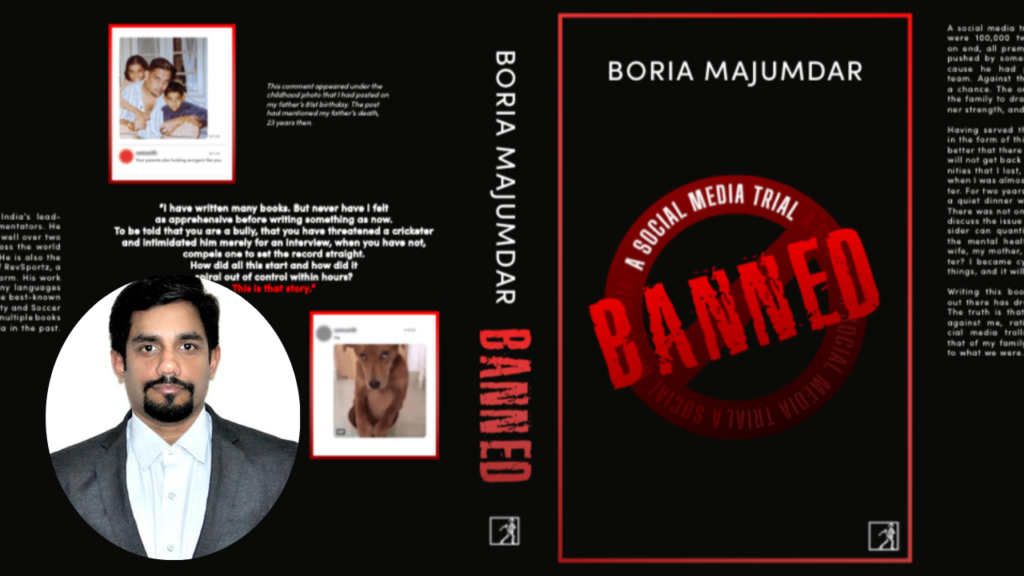In an era when social media platforms metamorphose into digital arenas of conflict and public sentiment sways with the capriciousness of a pendulum, journalists find themselves navigating treacherous waters. So then, who is cheaper? A journalist or journalism? Or, the minds of half-truth-fed accepted readers?
When a journalist faces any attack, it inevitably prompts essential discussions about the vulnerability inherent in those who strive to shed light on truth and hold power accountable.? Such events cast a dark shadow over journalists’ broader challenges in today’s media landscape, where the line between freedom of speech and the consequences of exercising it is increasingly blurred. Would you concur this as accurate, dear readers?
Renowned sports journalist G Rajaraman, in an interview I conducted in 2020, imparted sage counsel that has since become a personal mantra. “I always remind myself that my purview is the reportage of sporting events and developments, primarily confined within the confines of the playing arena,” he remarked. “I refrain from probing into the personal lives of athletes, for I believe they are entitled to a degree of privacy outside the realm of competition. Respecting this boundary engenders mutual respect; abstaining from intrusive inquiries ensures they need not furnish explanations for matters unrelated to their athletic pursuits. The eschewal of personal scrutiny, particularly if divorced from its influence on sporting performance, fosters a conducive rapport with athletes.”
At the heart of this very matter lies the fundamental principle of journalistic integrity and independence. As clearly evident, journalists shoulder the onerous responsibility of disseminating truth with impartiality and fidelity amid intense scrutiny and coercion from multifarious stakeholders. In an era where sensationalism and clickbait reign supreme, the pursuit of truth can sometimes come at a steep price. Moreover, the rise of social media as a primary source of news dissemination has added another layer of complexity to the journalistic landscape. While platforms like Twitter and Facebook offer unprecedented opportunities for journalists to connect with their audience and uncover stories, they concurrently expose practitioners to the spectre of online vitriol and harassment.
As a field hockey columnist, I am in a realm quite distinct from the one described. For, in our sport and in India’s national game, we only encounter love and respect from players—past and present, and share an incredible bond with the players we interact with.
In Banned: A Social Media Trial, Boria Majumdar pens a riveting account that transcends the boundaries of sport, delving deep into the turbulent waters of social media justice and its profound impact on the human psyche. As a seasoned hockey fan, writer and research scholar, I was captivated by Majumdar’s poignant narrative with the precision of a master storyteller. From the outset, Majumdar lays bare the tumultuous journey he embarked upon, navigating through the treacherous terrain of public scrutiny and online vitriol. Through eleven compelling chapters, Majumdar meticulously traces the contours of his ordeal and offers readers a raw and unfiltered glimpse into the harrowing aftermath of being ensnared in a social media maelstrom.
The crimson hue of “BANNED” emblazoned upon the cover serves as a visceral reminder of the scarlet letter affixed to Majumdar’s virtual persona, branding him with the ignominy of baseless accusations and relentless online vitriol. The chilling backdrop encapsulates the abyss into which Majumdar was unjustly cast, his reputation sullied by a digital lynch mob fuelled by falsehoods and malice. Yet, amidst the darkness, Majumdar emerges as a beacon of resilience, his narrative punctuated by profound vulnerability and unwavering resolve.
One thing here, I would love to tell personally, if allowed. As we reflect on the toll journalists bear in the modern landscape, it is imperative not to overlook their crucial function in ensuring accountability within governance, elevating marginalised narratives, and preserving the principles of democracy. Only through steadfast support for journalists and the vigorous protection of their rights can we fortify the foundation of a liberated and enlightened society.
That said, as Majumdar kept confronting the demons that had haunted him for far too long, I couldn’t help but be moved by his unwavering resolve in the face of adversity. Despite the scars that may never fully heal, Majumdar emerges as a beacon of hope, and he should be proud of his resilience for the tough two years, he went through. Indeed, akin to all of us, he grapples with vulnerability. As a father, brother, husband, and son, Majumdar ardently desires and rightfully deserves a future imbued with familial harmony, one where his professional tribulations exert no adverse impact.
On a personal note, I find myself inexorably drawn into Majumdar’s narrative tapestry, for its threads are woven with equal parts despair and defiance. “Banned” transcends its cricketing backdrop to offer a chilling indictment of a society ensnared by the tyranny of online mob justice. In standing united in defence of press freedom, journalistic integrity, and the pursuit of truth, I strongly believe we affirm our commitment to the principles underpinning our democratic society. By upholding these principles, we honour the sacrifices of those who have fought for press freedom and ensure a future where democracy thrives and truth prevails.
Also Read: Why was Banned: A social media trial was a necessity




